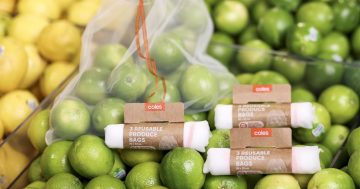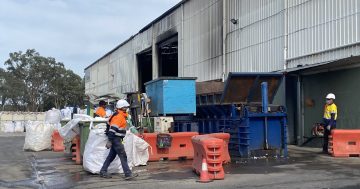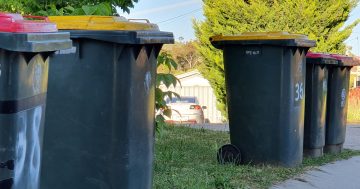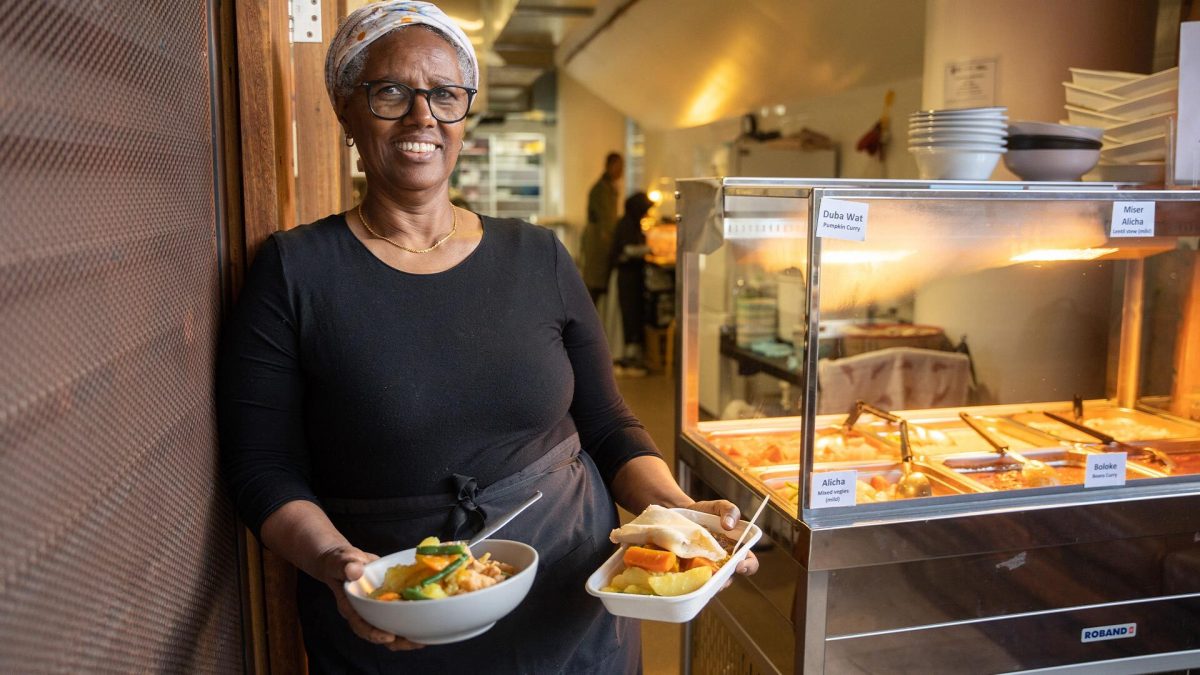
Owner of Fekerte’s Ethiopian in Acton, Fekerte Tesfaye, has already been serving meals in reusable and plastic-free alternatives. Photo: ACT Government.
Canberrans will have extra reason to reuse their thick plastic shopping bags from the beginning of next year as the ACT Government continues its mission to phase out single-use plastics.
The heavyweight and boutique plastic bags (greater than 35 microns in thickness) available at most supermarkets and retailers will be banned in the ACT from 1 January 2024.
In a matter of weeks, single-use plastic plates and bowls will also be banned.
Expanded polystyrene loose-fill packaging and trays and the plastic microbeads commonly used in rinse-off personal care and cleaning products will join the single-use plastics that can’t be supplied in the Territory from 1 July 2023.
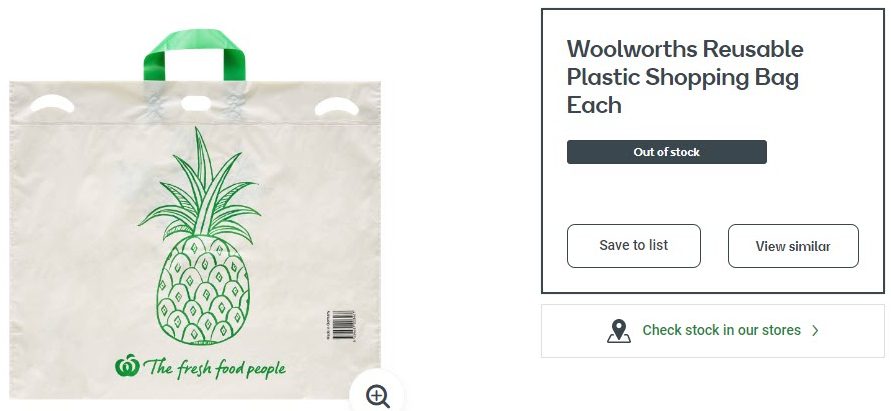
Woolworths’ reusable plastic shopping bags are now out of stock. Photo: Screenshot.
ACT Minister for Transport and City Services Chris Steel described it as a “major win for the environment and our community”.
“There has been strong support for the shift away from single-use plastics and the transition to using more sustainable materials, which protect our local environment and reduce harmful waste going to landfill.”
It’s tranche three of the government’s single-use plastics ban, which since 2021 has come for straws, cutlery, polystyrene takeaway containers, cotton buds with plastic sticks, and plastic bags less than 35 microns in thickness.
It will also bring the ACT in line with Western Australia, the first place in Australia to ban heavyweight plastic bags. Queensland is set to ban heavyweight bags later this year and South Australia next year.
However, they’ll remain available over the border in Queanbeyan and Jerrabomberra, where the NSW Government stopped short in June 2022 when it banned lightweight plastic shopping bags.
But Woolworths has already replaced heavyweight plastic bags in its stores with paper bags, and Coles is following suit.
Mr Steel said the new bans were advised by a 12-week consultation with the community and industry.
“Industry told us they need time to prepare for the ban, particularly in relation to banning additional plastic bags,” he said.
“The ACT Government has listened to this, and the ban on heavyweight and boutique plastic bags will not start for six months, and we have also put in place other appropriate exemptions for some other items.”
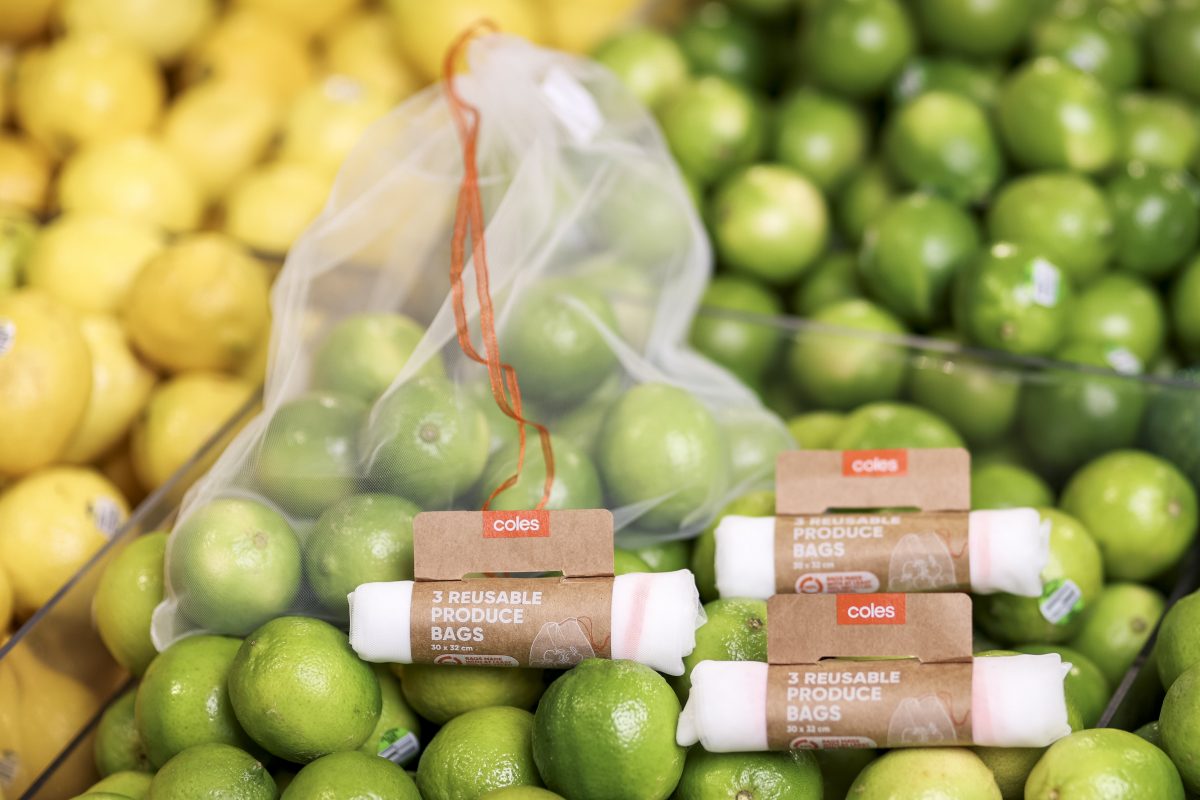
Coles trialled a ban of produce bags in its Canberra stores last year but decided to bring back compostable options. Photo: Martin Keep.
Other single-use plastics remain in the too-hard basket for now, mainly because “no suitable alternatives” are currently available.
“As a result, they have not been included in this ban but may be considered in the future as better substitutes are developed,” the Minister said.
These include plastic takeaway containers, plastic bowls with a lid, and moulded expanded polystyrene packaging used for the packaging and protection of electronics, white goods, furniture and other bulky items.
A permanent exemption applies for plastic bowls used in medical, scientific or forensic circumstances, as alternatives can compromise health and safety.
The government said Canberrans have embraced action on single-use plastics, and some businesses are already working on post-plastic solutions.
Fekerte’s Ethiopian restaurant in Acton, for instance, is serving their takeaway customers in reusable, plastic-free alternatives.
“I’ve been using these types of containers for years and customers tell me they support us using them,” the restaurant’s owner, Fekerte Tesfaye, said.
“Like a lot of other businesses, I want to do my part for the environment.”
The ACT Government will also start consultation on expanding the container deposit scheme to include wine, spirit and cordial bottles, and some heavy plastics.













